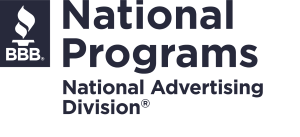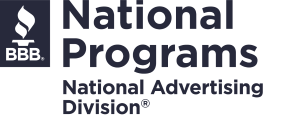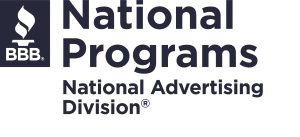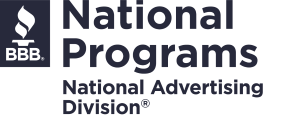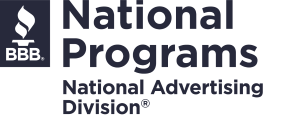National Advertising Division Recommends Accredited Debt Relief Discontinue Quantified Performance Claims About Debt Relief and the Format of Its Website
Nexis Newswire
Nov 02, 2022
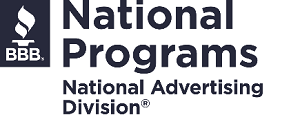
New York, NY – November 2, 2022 – The National Advertising Division (NAD) of BBB National Programs recommended that S3 Marketing, LLC and Beyond Finance, LLC d/b/a Accredited Debt Relief discontinue claims on www.accrediteddebtrelief.com that convey strong unqualified messages regarding the typical results experienced by users of the Accredited Debt relief program, including:
- “Debt Relief Can Cut Your Monthly Payments in Half”
- “Reduce your total debt by up to 50%”
- “Be debt free in as little as 12 months”
NAD also recommended that S3 Marketing discontinue the format of its rankings website www.debt-consolidation-reviews.org because it appears to be an independent review site ranking debt consolidation services according to objective factors, but is owned and operated by an affiliate of the advertiser.
The claims at issue were challenged by NAD as part of its routine independent monitoring of truth and transparency in U.S. national advertising.
Debt settlement companies, such as Accredited Debt Relief, market their services to reduce or eliminate unsecured consumer debt to heavily indebted consumers. Such companies attempt to negotiate with creditors to reduce or eliminate a consumer’s unsecured debt, such as credit cards, medical bills, or utility bills.
Advertising for debt settlement services must disclose the risks involved as well as avoid overpromising results by truthfully explaining the results consumers can reasonably expect to achieve.
“Debt Relief Can Cut Your Monthly Payments in Half”
NAD’s inquiry focused on whether the advertiser’s evidence was a good fit to support the claim, “Debt Relief Can Cut Your Monthly Payments in Half.” Based on the advertiser’s evidence, NAD concluded that cutting “monthly payments in half” is not representative of the typical consumer experience. NAD also found that:
- Beyond Finance does not make clear that its support for debt reduction claims is based on enrolled debt, which is a subset of the customer’s total debt (debts enrolled consist of more than 50 percent of the debt included in a consumer’s credit report); and
- Detailed and lengthy disclosures about the program and its material limitations appear at the bottom of the webpage and are not sufficiently prominent and in close proximity to the claim.
Therefore, NAD recommended that the advertiser discontinue the claim “Debt Relief Can Cut Your Monthly Payments in Half.” NAD noted that nothing in its decision prevents the advertiser from advertising the monthly payment reductions consumers can reasonably expect to achieve using calculations that reflect the typical experience of consumers and clearly and conspicuously disclosing any material limitations in close proximity to the main claim.
“Reduce your total debt by up to 50%”
NAD noted that the term “up to” can have different meanings based on the context in which the claim appears and the product category to which it is being applied. While some advertisers use “up to” to tout a product’s absolute best possible results, others use it to express realistic consumer benefits in an environment with highly variable results.
NAD determined that “Reduce your total debt by up to 50%” promises that consumers who enroll in the Accredited Debt Relief program will reduce their total debt by 50 percent. NAD noted that consumers cannot evaluate whether they will be able to achieve the 50 percent total debt reduction before entering the program and committing to pay the substantial fees associated with the program.
NAD recommended, therefore, that the claim “Reduce your total debt by up to 50%” be discontinued because:
- The advertiser’s support demonstrates that most consumers will not reduce their debt by 50 percent; and
- The claim refers to “total debt” but is calculated based on only enrolled debt.
NAD noted that nothing in its decision prevents the advertiser from advertising about the percentage reduction of debt its customers achieve provided, however, the advertising truthfully describes the reduction in debt consumers can expect to achieve using the advertised service and clearly and conspicuously discloses all material limitations in close proximity to any claimed benefit.
“Be debt free in as little as 12 months”
Customers in the advertiser’s program are heavily indebted consumers. NAD noted that the unqualified debt-free claim promises these consumers that they will have no debt in a short period of time (one year).
Given that the advertiser has thousands of customers, NAD determined that data showing a comparatively small number of people who are debt-free in less than 12 months does not represent the typical consumer experience. Therefore, NAD recommended that the claim “Be debt free in as little as 12 months” be discontinued.
Affiliate Disclosure
NAD questioned whether consumers would be misled regarding the relationship between Accredited Debt Relief and S3 Marketing because the website www.debt-consolidation-reviews.org did not clearly disclose material information about their relationship.
NAD noted that the website, which lists Accredited Debt Relief as #1, is presented as though it is sponsored by an independent organization that ranks debt consolidation services according to objective factors. However, the disclosures at the bottom of the website state that S3 Marketing, the operator of the site, “is an affiliate marketer, which means S3 gets paid if you choose to purchase products or services from the companies or websites advertised through placement of links on this site. Also, S3 is owned by the same company that owns Accredited Debt Relief/Beyond Finance.”
NAD noted that any disclosure that the website is paid advertising content contradicts the implied message of independence otherwise conveyed by a rating or ranking website. Because a disclosure that the review site is owned by the advertiser, even if clear and conspicuous, cannot cure the misleading takeaway that the site is independent, NAD recommended that the advertiser discontinue the format of the rankings website.
In its advertiser statement, S3 stated although it “disagrees with NAD’s recommendation to discontinue the format of the website, it agrees to comply.” Beyond Finance also stated while it disagrees with NAD’s recommendations it agrees to comply, noting that it “remains focused on its priorities of consumer trust and transparency throughout its operations.”
All BBB National Programs case decision summaries can be found in the case decision library. For the full text of NAD, NARB, and CARU decisions, subscribe to the online archive.
About BBB National Programs: BBB National Programs is where businesses turn to enhance consumer trust and consumers are heard. The non-profit organization creates a fairer playing field for businesses and a better experience for consumers through the development and delivery of effective third-party accountability and dispute resolution programs. Embracing its role as an independent organization since the restructuring of the Council of Better Business Bureaus in June 2019, BBB National Programs today oversees more than a dozen leading national industry self-regulation programs, and continues to evolve its work and grow its impact by providing business guidance and fostering best practices in arenas such as advertising, child-directed marketing, and privacy. To learn more, visit bbbprograms.org.
About the National Advertising Division: The National Advertising Division (NAD) of BBB National Programs provides independent self-regulation and dispute resolution services, guiding the truthfulness of advertising across the U.S. NAD reviews national advertising in all media and its decisions set consistent standards for advertising truth and accuracy, delivering meaningful protection to consumers and leveling the playing field for business.
Contact: Abby Hills, Director of Communications, BBB National Programs
703.247.9330 / [email protected]


